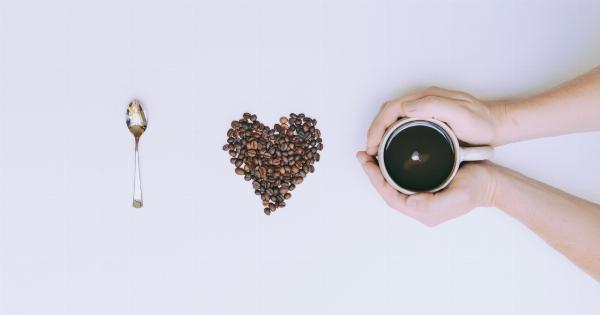Caffeine is one of the most commonly consumed stimulants in the world. It is a natural component of coffee, tea, chocolate, and many soft drinks.
While caffeine has a number of beneficial effects, it can also increase the risk of heart attack in some individuals. In this article, we will take a closer look at caffeine and its impact on cardiac health.
The Science of Caffeine
Caffeine is a naturally occurring stimulant that acts on the central nervous system to increase mental and physical alertness. It works by blocking the action of adenosine, a neurotransmitter that promotes sleep and relaxation.
When adenosine is blocked, the brain releases more dopamine, a neurotransmitter that stimulates pleasure and reward. This leads to feelings of wakefulness, alertness, and elevated mood.
Caffeine is found in a variety of plants, including coffee beans, tea leaves, cocoa beans, and kola nuts. It is also added to many soft drinks and energy drinks.
The amount of caffeine in a product can vary widely, with some products containing only a few milligrams per serving while others contain several hundred milligrams.
The Cardiovascular Effects of Caffeine
While caffeine can have beneficial effects on health, such as improving cognitive function and reducing the risk of several chronic diseases, it can also have negative effects on cardiovascular health.
Caffeine consumption can increase heart rate, blood pressure, and the risk of cardiac arrhythmias.
One study found that coffee consumption increased the risk of heart attacks in individuals who were already at high risk for cardiovascular disease.
The study found that consumption of three to five cups of coffee per day was associated with a 15% increase in the risk of heart attack, while consumption of six or more cups per day was associated with a 21% increase in risk.
However, not all studies have found a link between caffeine consumption and heart attack. Some studies have even suggested that moderate coffee consumption may be protective against heart disease.
The conflicting results may be due to differences in study design and population, as well as differences in the amount and type of caffeine consumed.
Caffeine and Cardiac Arrest
Cardiac arrest is a sudden loss of heart function that can be fatal if not treated promptly. It is often caused by an abnormal heart rhythm called ventricular fibrillation.
While caffeine can increase heart rate and blood pressure, it is unlikely to cause cardiac arrest on its own.
However, in individuals with underlying heart disease or other risk factors for cardiac arrest, caffeine consumption may increase the risk of a sudden cardiac event.
One study found that individuals who consumed more than 500mg of caffeine per day had an increased risk of ventricular arrhythmias, which can lead to cardiac arrest.
Caffeine and Post-Heart Attack Recovery
While caffeine consumption may have negative effects on cardiovascular health, it may also play a role in post-heart attack recovery.
Several studies have found that caffeine consumption is associated with a lower risk of mortality and a better outcome after a heart attack.
One study found that individuals who had a heart attack and consumed caffeine had a lower risk of dying in the hospital compared to those who did not consume caffeine.
Another study found that individuals who consumed moderate amounts of caffeine after a heart attack had a reduced risk of dying from any cause during a four-year follow-up period.
Conclusion
Caffeine is a widely consumed stimulant that can have both positive and negative effects on cardiovascular health.
While caffeine consumption can increase heart rate, blood pressure, and the risk of cardiac arrhythmias, it may also have beneficial effects on post-heart attack recovery. Individuals should be aware of their personal risk factors for cardiac events and consult with their healthcare provider about the role of caffeine in their diet.





























